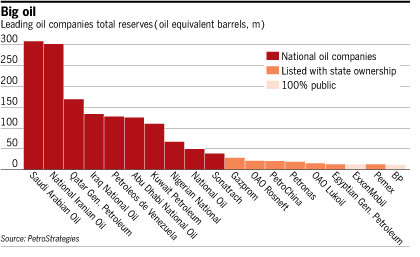Government Decision-Making in the Gulf
My first column at Forbes.com is up here (and on the opinion home page, which is kind of cool), and extends on some thoughts I have already posted on my blog about why government decisions in multi-agency task forces, such as those running the Gulf cleanup effort, seem to be made in such a stupid manner.
As most scientists know, one of the best tests of a theory is whether it makes correct predictions about future events. Since I wrote this article several days ago, we have seen this new story which is absolutely consistent with the decision-making paradigm I describe in the article (from Q&O)
Louisiana has been busily building berms about a mile out from the coast to halt the infiltration of oil into its sensitive marshes, wetlands and prime fishing areas. This process was greatly delayed by federal red tape, and now that the state has permits in hand it's being order to stop because, according to the U.S. Fish and Wildlife Department, it's doing it wrong:
The federal government is shutting down the dredging that was being done to create protective sand berms in the Gulf of Mexico.
The berms are meant to protect the Louisiana coastline from oil. But the U.S. Fish and Wildlife Department has concerns about the dredging is being done.
Plaquemines Parish President Billy Nungesser, who was one of the most vocal advocates of the dredging plan, has sent a letter to President Barack Obama, pleading for the work to continue.
[...]
Nungesser has asked for the dredging to continue for the next seven days, the amount of time it would take to move the dredging operations two miles and out resume work.
Work is scheduled to halt at midnight Wednesday.
Pat Austin is trying to understand the federal obstruction, but finds that political reasoning is the only thing that makes sense of it all:
I'm trying to see both sides here; I'm trying to understand the "coastal scientists" who contend that the berms will "change tidal patterns" and lead to more long term erosion of the islands, but if the islands are killed off by the oil what difference does it make? To borrow from Greta Perry's analogy, if my house is on fire, what does it matter what room I try to extinguish first? It's all doing down.
Read the Forbes article -- why exactly this decision was not only possible but inevitable is discussed in detail.
